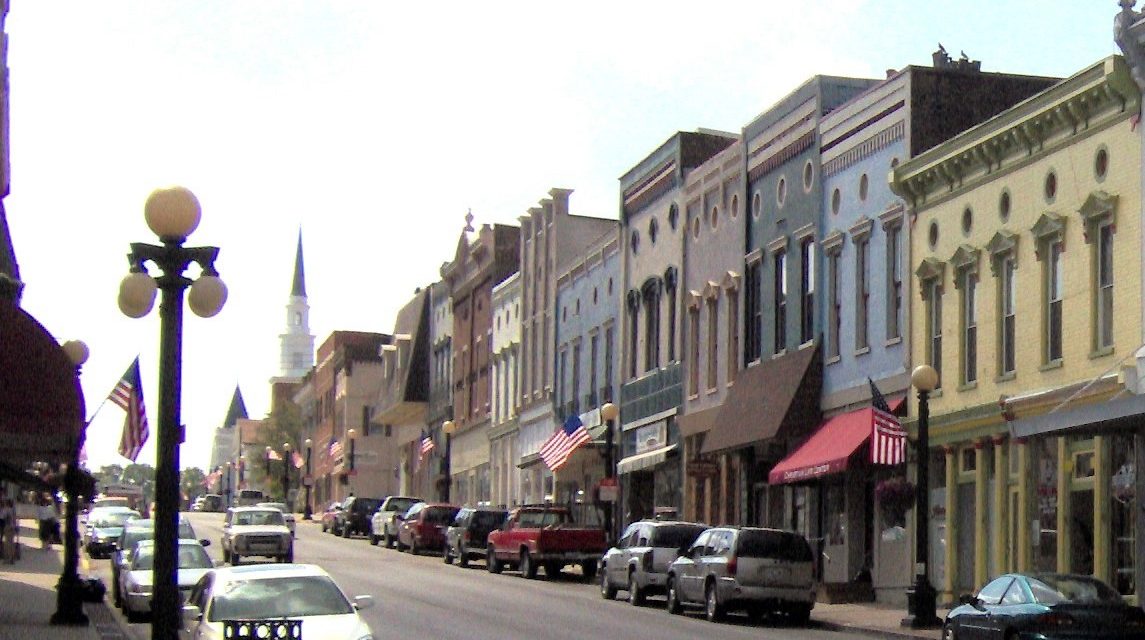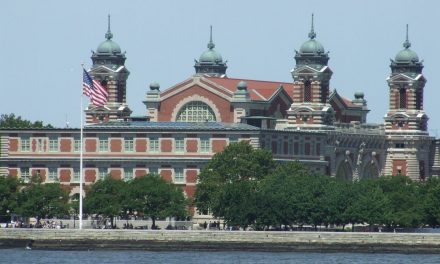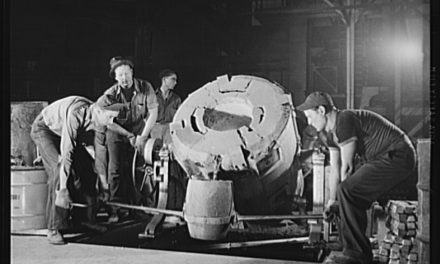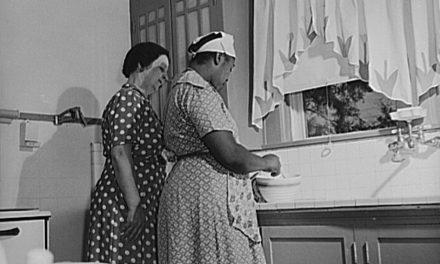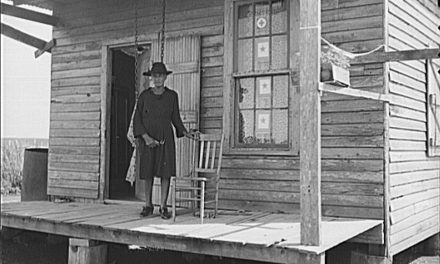A little over two months after Bataan, Philippines, fell to the Japanese, the town of Harrodsburg, Ky. will celebrate and remember its 66 soldiers who went missing in action and are presumed to be prisoners of war.
Every year on June 16, Harrodsburg celebrates the anniversary of its founding in 1774 by Captain James Harrod and his men from the eastern colonies. But this year, the town will be paying its respects to the men in Bataan.
On April 9, the Japanese captured Bataan along with 36,853 U.S. and Filipino soldiers. Among those captured was Company D, the 192nd Tank Battalion, which was composed of Harrodsburg’s tank company of the 38th Division of the National Guard.
Started ten years ago by Bacon R. Moore, once a lawyer and now a lieutenant colonel stationed at Fort Knox, the tank company consisted of a group of normal yet brave men in Harrodsburg. Using a few old tanks from the first great war and conducting drills in the streets of the small Kentucky town, the company enlisted men of all professions – businessmen, interior decorators, gas station attendants, farmers, truck drivers and mechanics.
In 1941, the men of Company D were the heroes of the June 16 Harrodsburg celebration, parking their tanks on the Mercer County fairgrounds and showing the town children how they disassemble their guns. But this year, there is little news about the company’s whereabouts.
Although the US Army does not usually allow soldiers to return home for local celebrations, it has made an exception for the men of Harrodsburg to respect the 66 lost in Bataan.
This year, Major General Jacob L. Devers, commander of the Armored Force, will come to Harrodsburg from Fort Knox with an army of tanks that will join the parade. Devers will give a speech at the event to pay tribute the Bataan men’s “quiet and continuing courage” and their families’ strength.
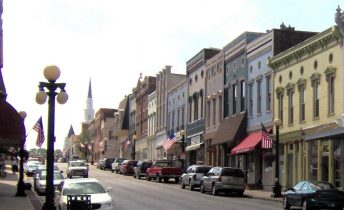
Downtown Harrodsburg, Kentucky, festooned with flags. Photograph by Sydney Poore, from Wikimedia Commons.
Harrodsburg has been a perfect picture of military support for the U.S. After the capture of the men in Bataan, Main Street was lined with American flags, and a number of homes raised flags on their lawns as well. Hundreds of photos of Harrodsburg servicemen fill the front windows of the town Big Store. And not a single man has yet tried to claim an exemption from the war draft, although this has proven hard on some farming families, which depend on their young sons for work.
J.T. Gentry, who owns a 400-acre farm in Harrodsburg, knows this all too well. He is the father of two sons – one is among the 66 lost in Bataan; the other left home right after the war began to join an aviation training school.
“But I would not have it any other way,” Gentry said. “I wouldn’t want a slacker in my family and both my boys have behaved the way I would like them to.”
Although Gentry is proud of his sons, he has noted how difficult it has been to support the war cause without them. He still gives his all, though. He offered his crops to the government, which pays him a steep price of eight dollars a bushel for hemp.
“No man likes to have his sons go to war, but it’s right that they should go and we are with them all the way,” Gentry said. “If the government says ‘we want wheat’ we’ll give it to them. If the government says ‘we want corn’ we’ll give them that too. All the farmers around here feel that way about it.”
Sources:
“Missing In Action.” Time Magazine 25 May 1942.
Atkinson, Brooks. “Mercer County, Ky., Keeps Chin Up, Trusts Its 66 on Bataan Still Fight.”The New York Times, 9 June 1942.

